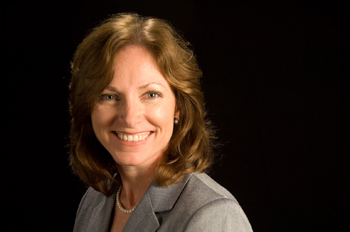CTG Scholars Recognized as Ranking Members of the Digital Government Community
 |
Theresa Pardo, director of the Center for Technology in Government. Pardo and three other scholars at the center have been ranked among the top 10 in digital government. (Photo Mark Schmidt) |
Theresa Pardo, Anthony M. Cresswell, Sharon Dawes, and J. Ramon Gil Garcia were recently ranked in the top ten of scholars in the field of digital government, according to a recent article from Proceedings of the 8th International Conference on Electronic Government. The area of digital government research is a relatively young field compared to other well established disciplines, yet the field has produced approximately 300 peer-reviewed articles per year since 2004. The paper�s author, Hans J. (Jochen) Scholl, associate professor, Information Science, University of Washington, notes that �for a young domain of study, this is a remarkably high output volume.�
The Center for Technology in Government (CTG), formed in 1993, has been a pioneer of digital government scholarship. Its mission, as one of UAlbany�s universitywide centers, is to examine important public problems at the intersection of policy, management; and technology; the essence of digital government research. In 1998, CTG organized a workshop funded by the National Science Foundation where 67 researchers and government practitioners convened to discuss ways to collaborate to produce innovative and effective information-based government services. The workshop report, Some Assembly Required: Designing a Digital Government for the 21st Century, was one of two reports funded by NSF that set the stage and established a multi-disciplinary agenda for the new domain of digital government research.
Scholl�s (2009) article entitled, Profiling the EG Research Community and Its Core, identifies eight CTG researchers and alumni as part of a 50-strong core of this international research community. Among the top 10 are Pardo (#2), Cresswell (#7), Dawes (#5), Gil-Garcia (#1), and Scholl (#3). Both Gil-Garcia and Scholl are former CTG graduate assistants. Gil-Garcia stayed on at CTG as a post-doctoral fellow from 2005-2007 and continues his affiliation as a research fellow from his current position as an assistant professor in the Division of Public Administration and the director of the Data Center for Applied Research in Social Sciences at Centro de Investigaci�n y Docencia Econ�micas (CIDE) in Mexico City. In addition, Luis Luna-Reyes (also a former CTG graduate assistant), Enrico Ferro (a 2005 visiting scholar to CTG from Italy), and CTG program associate Natalie Helbig are listed in the top 50.
In addition to leadership in publishing digital government research, CTG has been actively encouraging a global digital government research community through conference development, leadership in the Digital Government Society of North America, and several grants from the National Science Foundation (NSF). These NSF grants have given CTG the opportunity to study the development of a digital government journal, to participate in research collaborations with European-funded projects in the United Kingdom and Italy, to join US research delegations to China, India, and Hungary, and most recently, to lead a multi-year effort (2005-2009) to develop a sustainable international community of digital government researchers through international working groups and an annual international institute for doctoral students.
Ten years after CTG�s ground breaking report, the Center has once again been funded by the National Science Foundation to convene a similar workshop of digital government researchers. The workshop will examine the impact of "rich-context" information technology research, explore strategies for securing the funds targeted at research of this type, and lay out an agenda for interdisciplinary �rich context� research in information technology in the public sector. The workshop is set to take place in the spring of 2010.
![]() For more news, subscribe to UAlbany's RSS headline feeds
For more news, subscribe to UAlbany's RSS headline feeds


